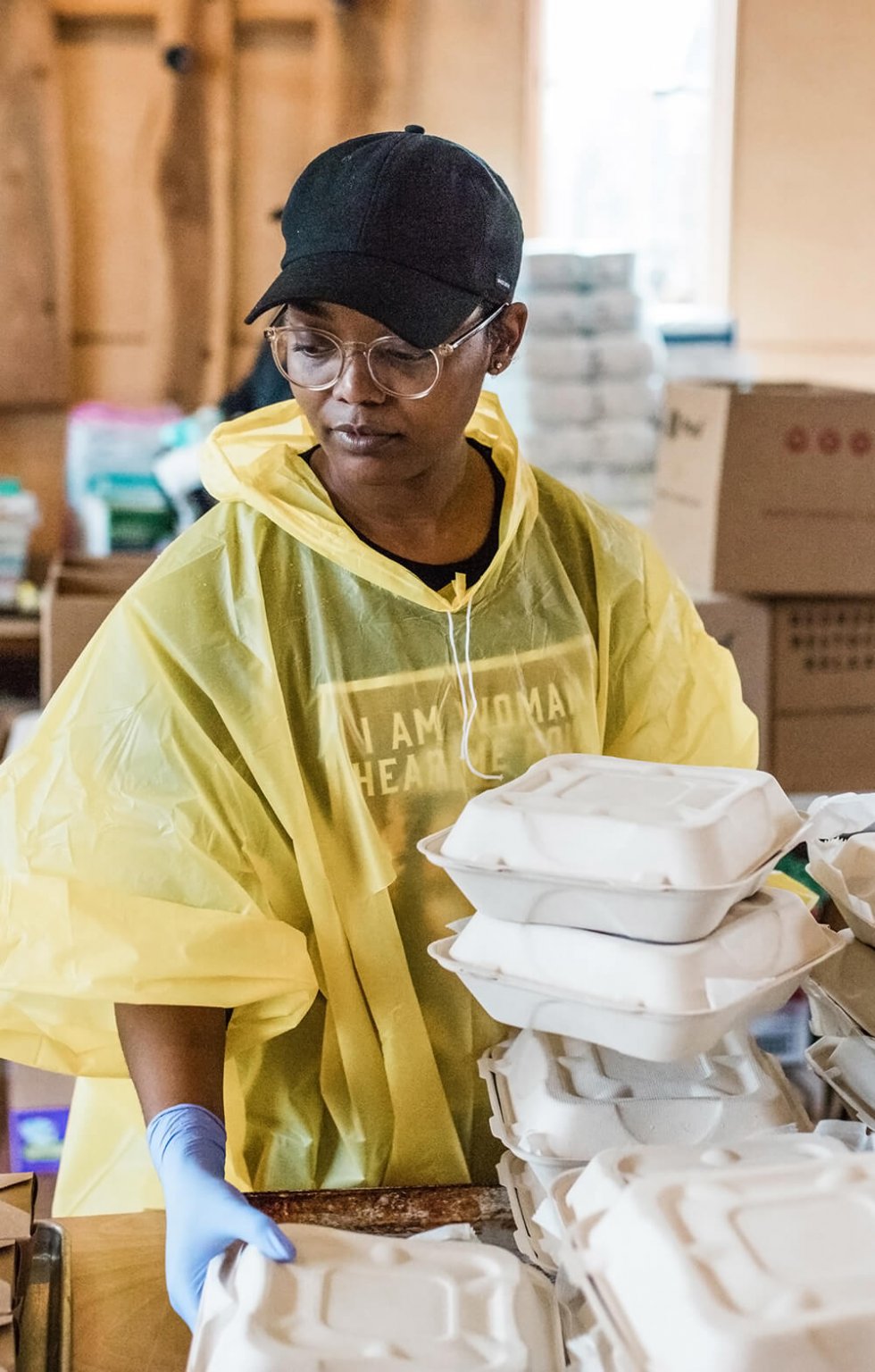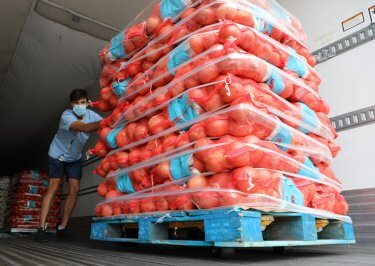When the coronavirus began sweeping across the United States in early 2020, it disrupted every facet of American life. Beyond its tragic human toll, the crisis shut down many aspects of our food supply chains. Prior to the outbreak, more than 37 million Americans were struggling with hunger and access to healthy food. The pandemic made it more difficult to feed those already in need, while millions more suddenly found themselves food insecure as their hours were cut drastically or their jobs vanished altogether.
As the economy slowed, record lines could be seen outside food pantries and soup kitchens. Restaurants were closed by government order or turned into minimalist takeout operations. Suddenly, the fear wasn’t just about being infected by the virus; the fear was also about going hungry.
Thankfully, enterprising and empathetic Americans didn’t sit idly by as this dimension of the disaster unfolded. A great many food-focused nonprofits sprang into being or pivoted hard to meet the demands of the moment.
“There’s so much human ingenuity and creativity going on in the food and agriculture sector, it’s astounding,” said Danielle Nierenberg, president of Food Tank, a nonprofit focused on food-system reform. “I knew all these people were smart; but put them in a crisis, and they are geniuses.”
Here are three admirable nonprofits that stepped up and adapted in order to help with the vital work of keeping Americans fed during a difficult time.

Thanks to The LEE Initiative, hundreds of to-go meals are picked up by laid- off restaurant workers each night from shuttered restaurants that were turned into relief centers.
With Capital One’s assistance, as well as funding from individuals, grants and other corporate partnerships, the Power of 10 quickly scaled up to a national effort. At the height of the pandemic, almost 50 restaurants nationwide — including JJ Johnson’s Fieldtrip in New York City, Peja Krstic’s Mot Hai Ba in Dallas and Brittanny Anderson’s Brenner Pass in Richmond, Va., — were each producing 1,000 meals every week for those in need.
Each restaurant was in charge of its own staffing and determining where meals were distributed. “One of our taglines is ‘Every neighborhood restaurant knows its community better than anybody else,’” said Bruner-Yang, whose meals fed people at MedStar Washington Hospital Center, the LGBTQ youth shelter Casa Ruby, the National Children’s Center and several eldercare homes in D.C.’s Chinatown.
The transition from being a lauded young restaurateur still in expansion mode to heading up a nonprofit helping keep his businesses and others afloat wasn’t easy, but there were unexpected benefits. “It’s allowed me to reconnect with customers and staff,” Bruner-Yang said. “Even though this has been super painful and tough, that’s the part I’ve enjoyed.”
As his restaurants reopen and he returns his focus to running his businesses, Bruner-Yang intends to keep the Power of 10 going. “The people who need this food needed support before this pandemic,” he said. “And they’re going to need it afterward.”
Goldman and friends wanted to continue their efforts on a grander scale, but they needed more help. Over the next week and a half, by reaching out via phone and through social media, they organized a team of over 100 student volunteers, mostly friends, and friends of friends. FarmLink partnered with Food Finders, a nonprofit in Los Alamitos, Calif., that connects donated perishable food to hundreds of nonprofit pantries and shelters throughout Southern California. Another key partnership was formed with Uber Freight, which sponsored some of FarmLink’s efforts and offered access to its technology platform to ensure simple, efficient shipping for the food procured.
As of this writing, FarmLink had facilitated the delivery of over 30 million pounds of food.
“Every day is crazier than the day before,” said Goldman. “It feels like ‘Tiger King.’ When we started this, I thought we could maybe do 20 deliveries by the end of the summer.” And now they’ve delivered 30 million pounds.


